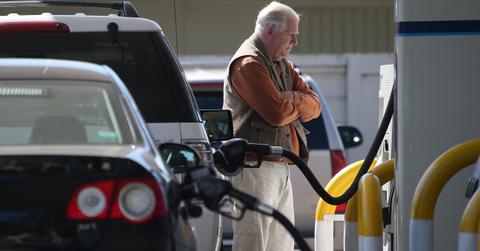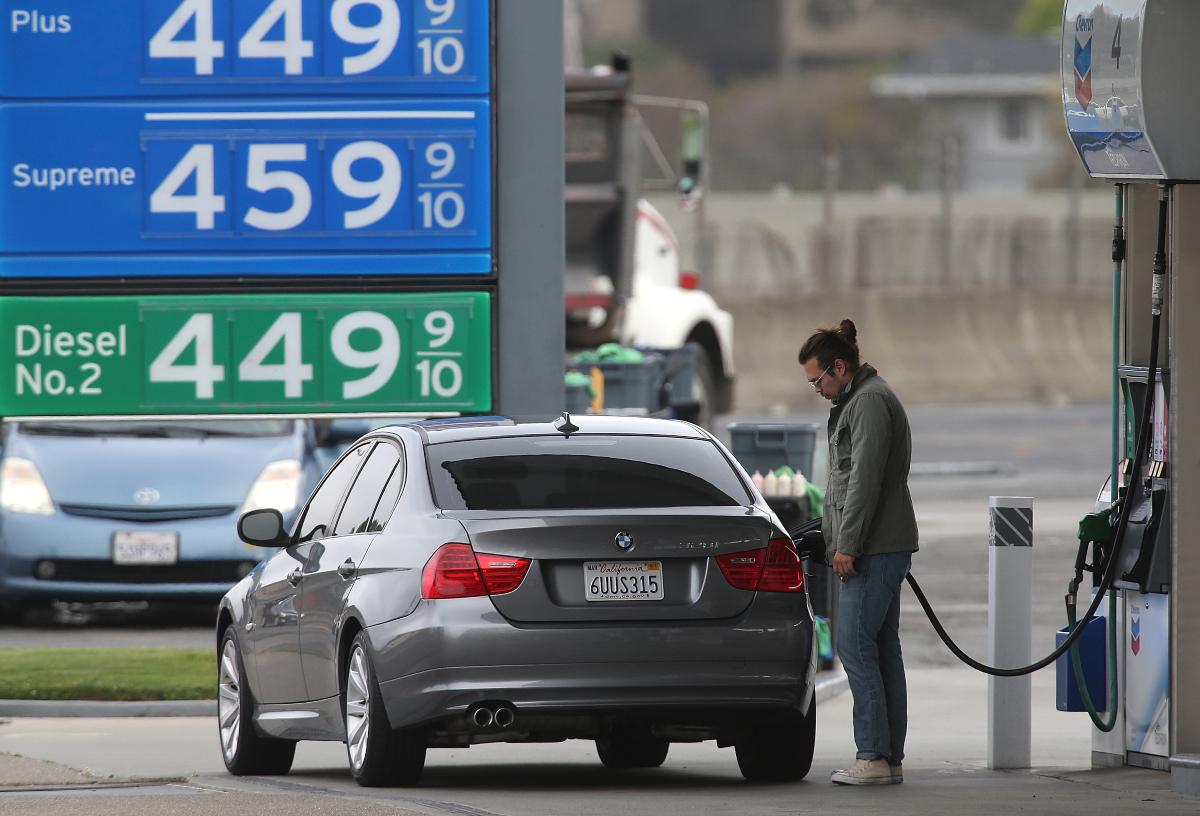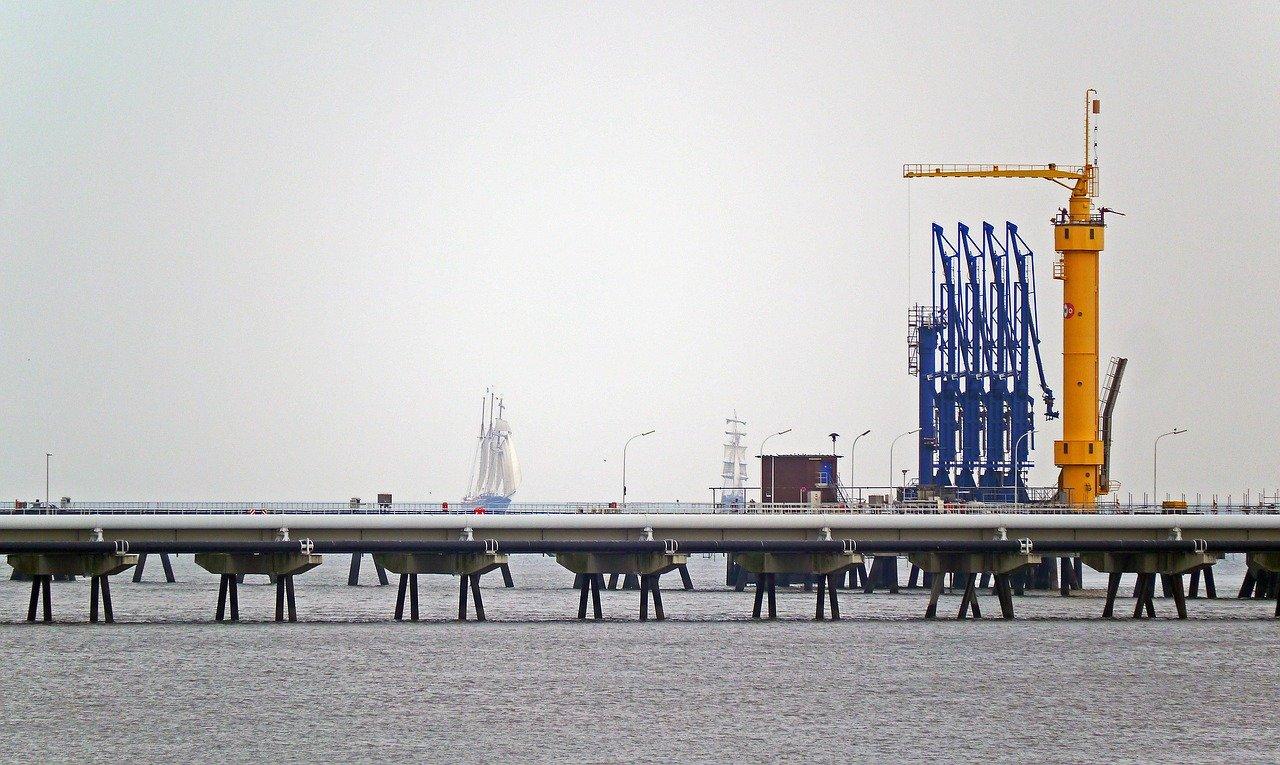Oil and Gas Prices Might Hit All-Time Highs, World Pays for Putin’s War
The world is paying the price for Putin's invasion of Ukraine. How high can oil and gas prices go amid the Russia-Ukraine war? Here's what you can expect.
March 2 2022, Published 9:34 a.m. ET
While stock markets globally have plummeted amid the Russia-Ukraine war, at least three commodities, energy, aluminum, and nickel have spiked. Energy prices matter the most here since it directly impacts the monthly budgets of low-income and middle-income families. How high can oil and gas prices go amid the Russia-Ukraine war?
Consumers aren't the only ones fretting about multi-year high gas prices at gas stations. The steep rise in energy prices has also altered the fiscal calculus of countries that are major oil importers.
How much crude oil does Russia produce?
Russia is the third-largest crude oil producer globally and produces around 11 million barrels of oil every day. Its daily exports are between 5 million and 6 million barrels of oil, which makes it a key player in the global energy markets.
Have countries stopped buying oil from Russia?
The sanctions on Russia, especially on the banking sector where several Russian banks have been blocked from SWIFT, have cajoled some traders to move away from Russian oil. While Western countries have imposed several sanctions on Russia, barring Germany delaying the approval of the Nord Stream 2 pipeline, none of the sanctions have targeted Russia’s oil and gas sector.
Russia’s oil and gas exports contribute over a third of the country’s budget. Targeting Russian oil and gas exports might have been a key tool to deter Vladimir Putin from invading Ukraine. However, it's the other way around. Europe is concerned that Russia might weaponize energy exports and cut off gas supplies to the continent, which is the lifeline for the energy-deficient region.
In the U.S., President Biden is battling voter backlash amid multi-decade high inflation. The Republicans have managed to build a narrative that Biden’s policies are to blame for higher gas prices — an allegation that has some merit in it.
Crude oil prices rise above $100 per barrel.
Crude oil prices were above $100 a barrel in 2014. That year, OPEC decided against production cuts and member states instead worked towards protecting their market share amid rapidly rising U.S. shale production.
Until a few months ago, crude oil at $100 looked like a pipedream even though Putin said in 2021 that it was a possibility. Fast forward to February 2022 and crude oil prices are back above $100 per barrel.
How high can crude oil prices go?
John Kilduff, a partner with Again Capital, thinks that crude oil prices, which includes both WTI and Brent, are now headed towards $125 per barrel. Morgan Stanley also has a bull case $125 target for Brent.
Can crude oil prices rise to $200 per barrel?
Bank of America thinks that if Russian oil exports are sanctioned, crude oil prices might rise to $200 per barrel. The forecast is based on the analysis by Bank of America’s head of global commodities and derivatives research, Francisco Blanch, who thinks that for every 1 million barrels of oil removed from the global markets, crude oil might jump by $20 per barrel.
How high can gas prices go in the U.S.?
According to the AAA Gas Prices, the average unleaded gas price in the U.S. on March 2 was $3.656. The prices have increased significantly over the last year and are now getting close to the average price of $4.114 that they hit in July 2008. That month, crude oil prices hit their all-time high of $147.27.
Looking at the current dynamics, U.S. gas prices might rise more from these levels in case Russian oil exports are hit with punitive sanctions.
Can Biden bring down gas prices?
President Biden has a tightrope walk to restore normalcy in global oil markets. Venezuela and Iran can pump more oil but both of these countries are under U.S. sanctions. Will the U.S. be willing to offer more leeway to these countries to get tough on Russia? We’ll have to wait and see. For now, U.S. consumers might need to pay more at gas stations, in what Biden alluded to as the “price for defending freedom.”



